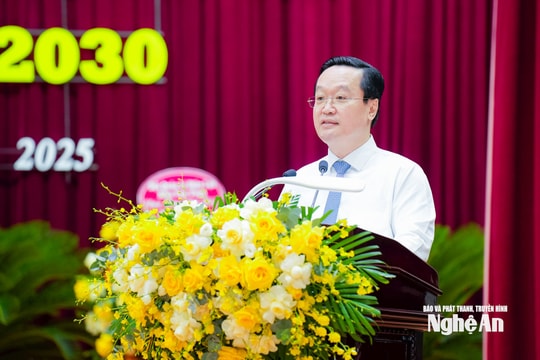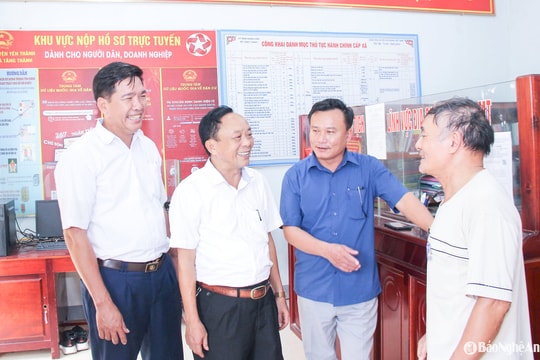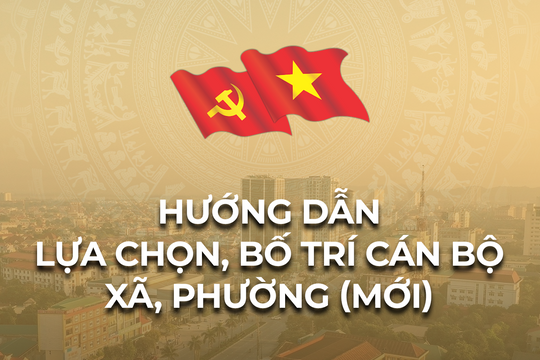Strengthening the team of commune-level officials - the key to effectively operating two-level government
After nearly 3 months of operation, the 2-level local government model in Nghe An has been operating smoothly, promptly handling administrative procedures for people and businesses. However, in many mountainous communes, the quantity and quality of staff and civil servants still do not meet requirements.
Lack of staff,Mountainous communes "struggle" to operate two-level government
Mr. Vi Van Bich - civil servant of Muong Long Commune People's Committee (Nghe An) has the main expertise in construction but due to lack of staff, he has to concurrently take on the fields of land, agriculture, environment, information technology, and digital transformation. Since implementingtwo-level local government, the workload and pressure of communal officials and civil servants is increasing. “The workload and pressure of the work has increased sharply, the commune has 13 villages, the farthest village is nearly 20 km from the center, the dirt road must be walked. People come even outside of office hours, but at noon, or on Saturdays and Sundays, the staff is still on duty to handle the problem in time”, Mr. Bich shared.
Muong Long is one of the 9 communes in Nghe An that have not merged, do not have specialized departments such as economics, culture - society, public administration service center but still have to ensure full functions of the commune government. It is an especially difficult area, poor and near-poor households account for 75% of the population, there are still villages without telephone signal, internet and national grid. Lack of specialized staff makes the processing of documents and procedures here always overloaded.
According to Mr. Pham Van Hoa - Chairman of Muong Long Commune People's Committee, the commune was assigned 27 staffing quotas but currently only has 15. "The public administration service center does not have enough human resources and the quality is not up to standard, so many files still have to be received and processed manually," said Mr. Hoa.
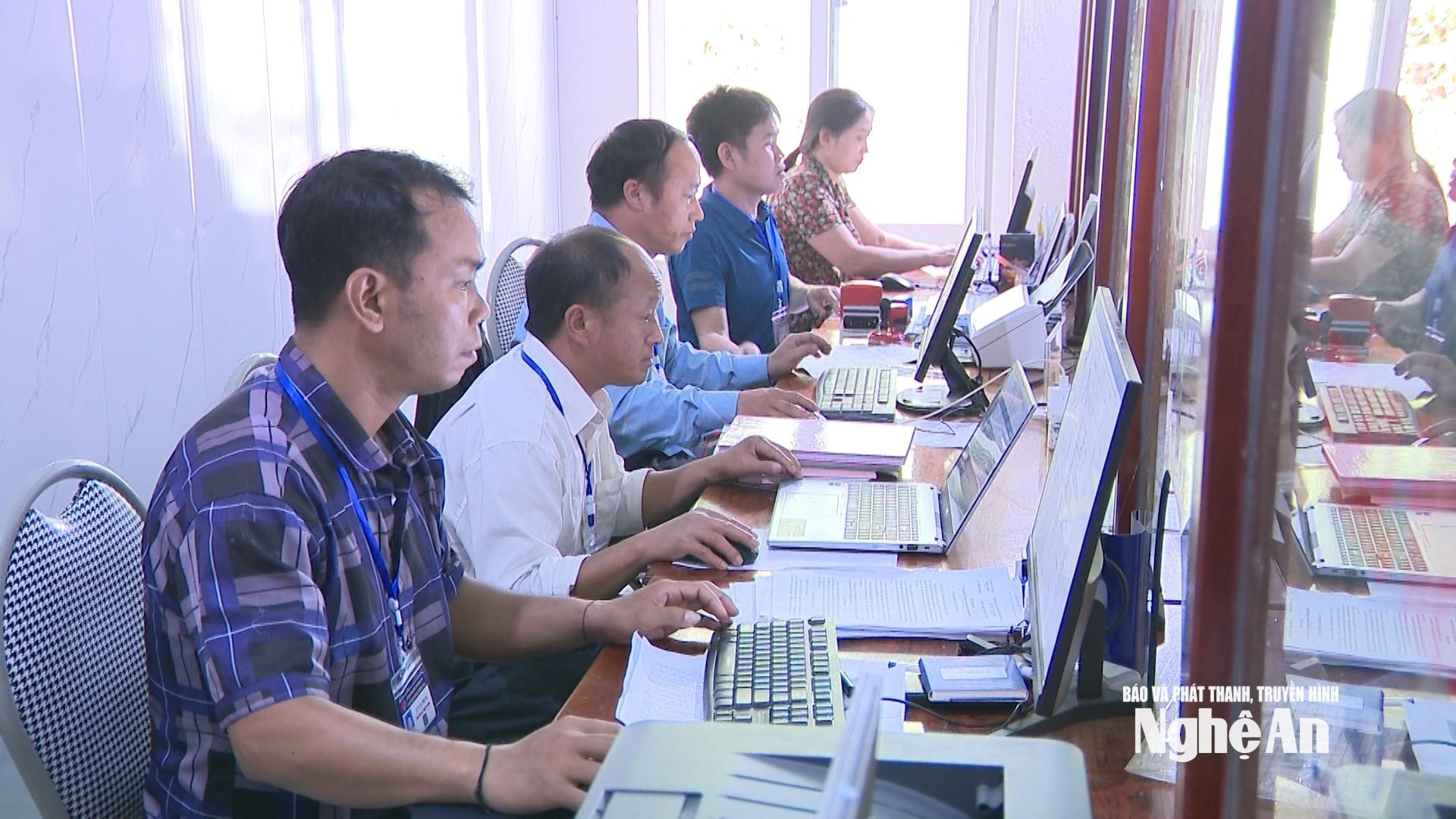
As a commune with more than 12 km of border adjacent to Laos, a large natural area, and a large population, Tam Quang commune holds a particularly important position in the development strategy of the highlands and border areas of Nghe An province. After merging with Tam Dinh commune, the workload has increased many times, but the commune is still short of more than 10 positions. Some cadres are about to retire or transfer jobs, putting pressure on those who stay.
Ms. Lo Thi Da Ny - Vice President of the Commune Women's Union was assigned to take on the health sector of the Department of Culture and Society, even though she had no expertise. "The volume was large and involved many regimes and policies, so it was very difficult to handle," she shared.
Ms. Kha Thi Hien - Vice Chairman of Tam Quang Commune People's Committee said that the commune is arranging for part-time staff, and at the same time, requesting permission to dispatch contract staff to support departments and offices to speed up the work progress. The staff have also caught up with the work, handling administrative procedures for people when they come to do transactions smoothly.
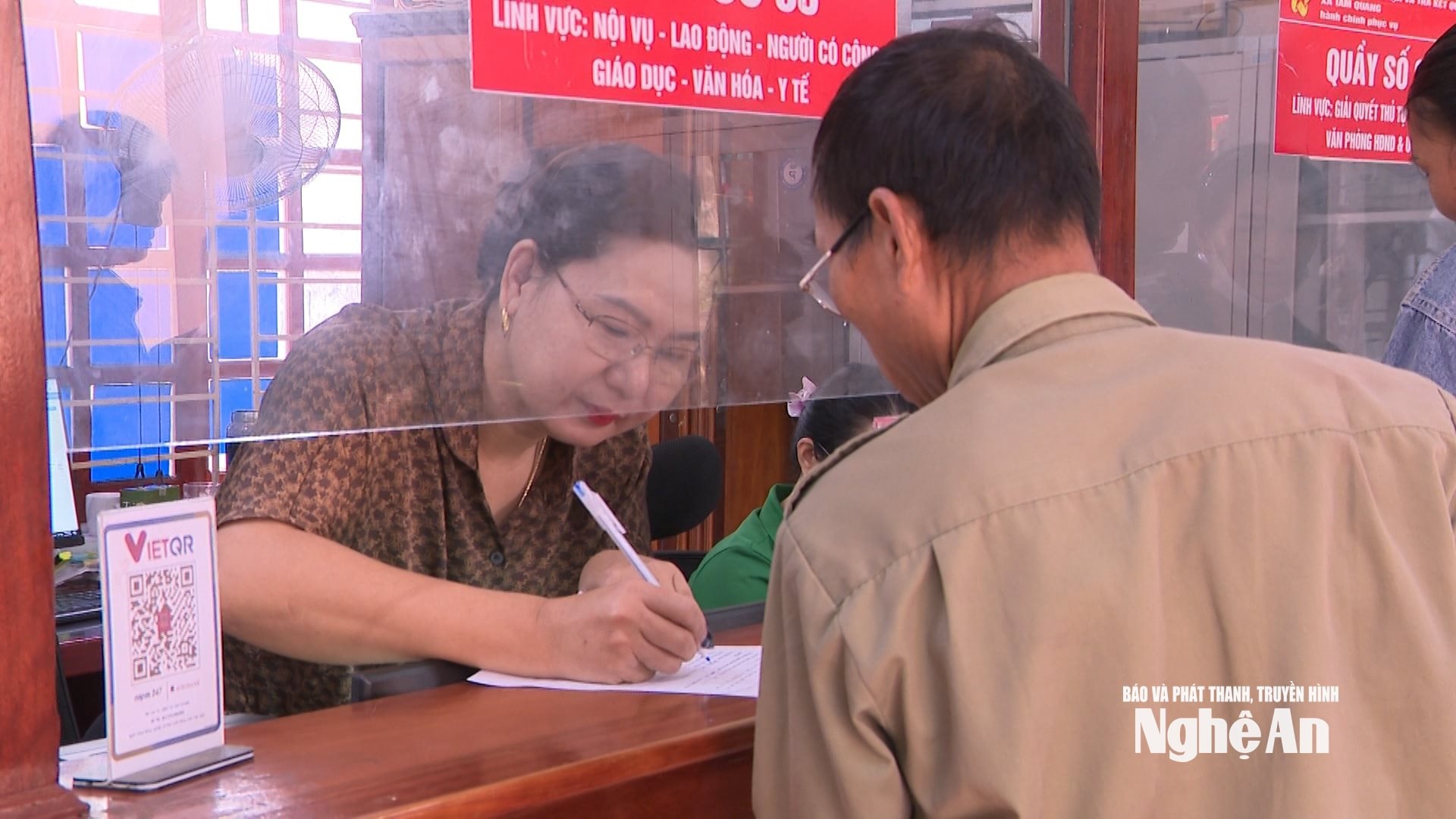
Paradox of local surplus and shortage at the grassroots level
Nghe An province currently has 8,635 staff in 130 communes and wards, exceeding the temporary quota set by the Central Government by 647 people. However, the paradox of "local surplus - shortage" still occurs: Some places have excess staff, while others lack key positions. There are 56 communes that lack both staff and specialized human resources in essential fields such as accounting, information technology, digital transformation, land management, justice, etc., directly affecting the effectiveness of local government operations.
According to Mr. Nguyen Hong Tai - Chairman of the People's Committee of Tuong Duong commune: "The commune's Fatherland Front agency has only been able to arrange a head, there is no staff specialist so the force is still thin, and the implementation of tasks in the area faces many difficulties."
Mr. Kha Van Thuong - Vice Chairman of Chau Khe Commune People's Committee suggested: "We are lacking positions such as economic department head, agricultural and cultural specialist. Most of the semi-professional force has been formally trained, I hope superiors will consider arranging local staff to fill the vacant positions."
From July 1, 2025, when the two-level government model is implemented, in addition to more than 1,000 tasks transferred from the district level, communes will also have to undertake many new tasks related to decentralization and delegation of power. Meanwhile, the management, legal, professional and digital transformation capacity of a number of commune-level officials is still limited.
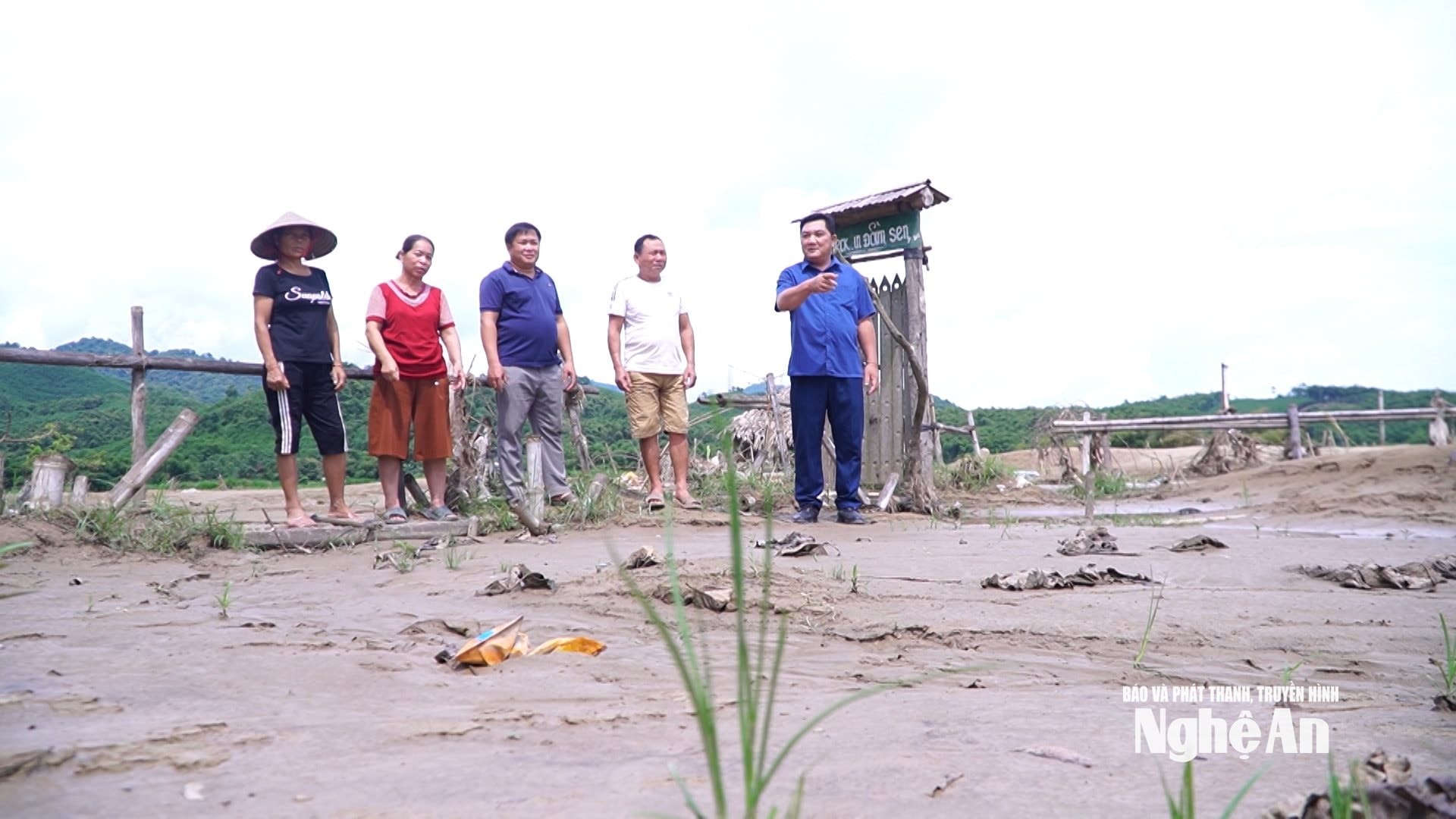
Faced with this situation, many localities have been flexible, creative, proactive in arranging and maximizing the existing human resources. In Minh Hop commune, the People's Committee has rearranged personnel to suit each position, and at the same time, required cadres to actively participate in training and improve their qualifications. In Dong Hieu commune, only one general accountant has been assigned to the Party, Front and mass organizations so that the remaining staff can be used to increase the number of personnel for the professional sector of the Fatherland Front.
Mr. Tran Khanh Son - Secretary of the Party Committee of Dong Hieu commune said: "We clearly assign responsibilities to each person, try to 'finish work but not finish time'; prioritize public administrative service centers, arrange competent staff with good communication skills to serve the people".
Efforts to improve and strengthen staff for disadvantaged areas
To continue to improve, supplement, arrange and organize cadres, civil servants and public employees after the reorganization of commune-level administrative units, the Standing Committee of Nghe An Provincial Party Committee issued Conclusion No. 586-KL/TU. Accordingly, "the transfer of cadres and civil servants between communes and wards must be based on job positions, in accordance with professional qualifications, skills and work experience; transfers must be made from places with surplus to places with shortage, from places with many surpluses to places with few surpluses. In particular, for communes and wards that currently have 80 or more cadres and civil servants, a list of cadres and civil servants will be made to propose the transfer and secondment to work in communes with shortages".
In that spirit, on August 15, 2025, the Provincial People's Committee continued to issue Official Dispatch No. 8311, requesting departments, branches and sectors to make a list of at least 5% of cadres and civil servants on the payroll to mobilize, second, and strengthen to difficult communes, prioritizing the fields of land, finance, environment, construction, information technology and public administration.
However, the "human resource gap" in many communes, especially in mountainous, remote and isolated areas, has not been filled; that is also a "bottleneck" that needs to be resolved soon so that the two-level government can truly operate smoothly and effectively. Mr. Ngo Tri Cuong - Head of the Department of Government Construction and CTTN (Nghe An Department of Home Affairs) said: "The province has transferred cadres from places with surplus to places with shortage, coordinated with the Provincial Party Committee's Organization Board to make a list of 5% of cadres, civil servants and public employees of departments and branches to increase secondment to the grassroots; at the same time, accepting civil servants for non-professional workers if they meet the prescribed conditions".
The implementation of the two-level government model is a major reform step, requiring a strong restructuring of the staff and civil servants at the commune level. When this force is arranged in sufficient numbers, with the right expertise, courage, capacity and spirit of being close to the people, the two-level government apparatus will operate effectively, contributing to the implementation of the goal of sustainable development in the Western Nghe An region.

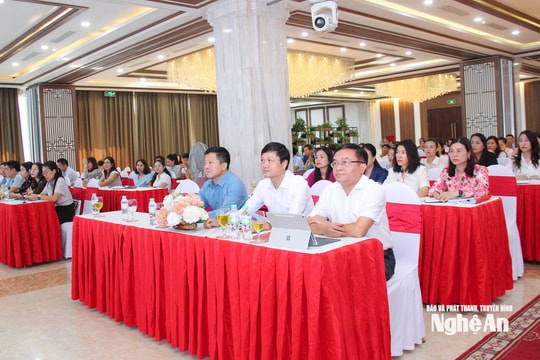
.jpg)
.jpg)
